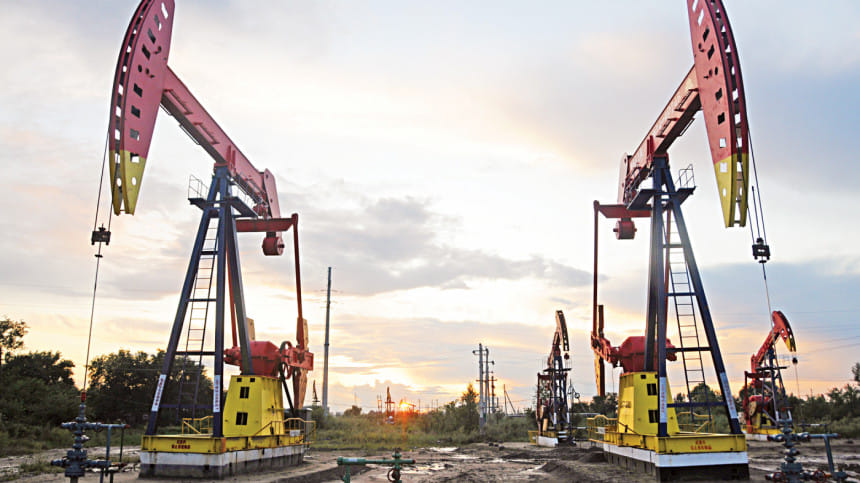Why oil price yet to ignite on Middle East escalation?

Despite growing tensions in the Middle East, oil prices are yet to inflame skyward, with Tehran and Washington holding back from full-scale war and owing to abundant supplies, analysts said.
Benchmark oil contract, Brent North Sea crude, has rallied about five dollars this week after Iran's missile attack on Israel -- but remaining around $75 per barrel.
This compares with more than $90 at the start of the Israel-Gaza war almost one year ago.
"Until the geopolitical situation in the Middle East deescalates, oil prices will clearly remain at risk of spiking higher," David Oxley, chief commodities analyst at Captial Economics research group, noted on Wednesday.
"But against a backdrop of faltering demand and greater supply in the wider oil market, the risks to oil prices over the next year are arguably skewed to the downside."
Iran launched its second direct attack on Israel in history on Tuesday, firing what it said were 200 missiles in retaliation for the killings of Tehran-backed militants.
Israeli Prime Minister Benjamin Netanyahu vowed to make Iran "pay" for its "big mistake", while Tehran on Wednesday warned that it would launch an even bigger attack if it is targeted.
Experts are unsure over the nature of potential retaliation, however.
"With Israel now expected to retaliate, the chances of further escalation are high, prompting a pivot in (oil) market sentiment from concerns over excess supply to fears of shortages," said Ricardo Evangelista, senior analyst at ActivTrades.
Tamas Varga, an analyst at oil broker PVM, said retaliation "could include damaging or obliterating Iran's oil facilities".
Iran, producing around three million barrels of oil daily, is the world's ninth-largest producer of crude, according to current industry data.
Naeem Aslam, analyst at traders Zaye Capital, said prices could be "flirting near the $100" mark should a really serious threat materialise.
But he added: "We continue to believe that the likelihood of such a prolonged war is improbable."
Market watchers have drawn comparisons with Iran's attack against Israel on April 13, which had no concrete follow-up and little impact on oil prices.
Meanwhile, ahead of US presidential elections next month, "the (Joe) Biden administration will not let oil prices soar", analyst John Plassard at investment group Mirabaud, told AFP.
At the same time, Biden has ordered the US military to "aid Israel's defence against Iranian attacks and shoot down missiles that are targeting Israel".
For several months, global oil demand has been weighed down by an economic slowdown in China, the world's largest importer of crude, keeping world supplies elevated.
That could change, however, after Beijing last week announced significant measures aimed at stimulating the world's second-biggest economy.
"To reverse the trend, China needs an increase in consumer demand and a solution to the real-estate crisis," noted analyst Jorge Leon at research group Rystad Energy.
Supplies won a further boost Wednesday, with official data revealing a surprise jump in US crude stockpiles.
Eight members of the OPEC+ group of oil-producing nations, including Saudi Arabia and Russia, did agree last month to extend their voluntary supply cuts until the end of November, postponing a planned output increase.
However, "if Iran's production was disrupted, OPEC+ would be able to produce more..., probably around 3.5 million barrels per day", forecast Leon.

 For all latest news, follow The Daily Star's Google News channel.
For all latest news, follow The Daily Star's Google News channel. 







Comments